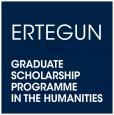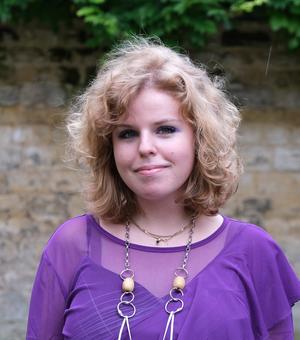Kathleen Quaintance (USA)
I am from Greensboro, North Carolina. I completed my bachelor’s at Sarah Lawrence College with a focus in art history and studio art, and I am currently reading for an MSt in Women’s Studies. I have mostly focused on gender, art theory and aesthetics, modern history, and interdisciplinary studio practice. One of the main projects that frames a lot of my research and practice involves interrogating the perceived split between “art” and “crafts,” and how this boundary is gendered. In unpacking this inquiry, I have explored interdisciplinary pathways, including but not limited to: the relationship between art and utility, the history of writing on aesthetics, the concept of taste, queer domestic alternatives, my craft-based art practice, feminist phenomenology, re-imaginations of kitsch, and myriad histories of the everyday.
I aim to transform the gendered divisions between art, craft, and design; framed by a desire to understand and revise lacunae in feminist art historical discourse. I argue that attention to women’s craft can lead to monumental feminist transformations in patterns of thought regarding cultural productions. In keeping with my desire to trouble disciplinary boundaries, my work involves both academic research and less traditional practice-based research. For example, my undergraduate thesis was an affirmation of the importance of workshop-based women craft practitioners to the history of British design in the Interwar period, so during my final interdisciplinary studio seminar, I re-enacted the specific printmaking processes that I had researched and written about. One of several ongoing projects I am working on involves the development of a manifesto for craftspeople using feminist interventions into the intellectual history of aesthetics.
My current research focuses on women who worked in fields which have not been given the designation of ‘fine art’, including designers, craftswomen, and teachers. My dissertation will expand upon my undergraduate thesis by focusing on how workshop environments facilitated conversation and collaboration between women artist-crafters who felt excluded from fine arts in the interwar period. This collective practice morphed into wartime and directly post-war industrial design. I aim to involve craft within discourses of gender and modernity, so that I may demonstrate the significance of a craft-based design ethos within a larger discourse regarding the proliferation of modern visual culture and the gendering of cultural production in the twentieth century. Archival research is a crucial component of this project. Gaps in literature resulting from a lack of scholarly research into modern crafts necessitate a thorough intervention in the archive, which could allow this work to bridge the gaps between history, theory, and feminist praxis.
In addition to my academic work, I am also a practising artist. Using craft-based methods, I mostly make useful objects, including furniture and textiles. I have worked as a printmaking studio technician, specializing in woodcut and silkscreen, and I make comics and illustrations for various publications. I love teaching art, from printmaking to sewing to traditional Appalachian crafts, and I have enjoyed working in museum education.
I have witnessed strong connections between work in the humanities and work in the studio. Thus, I hope to collaborate with other humanities scholars who have visual elements to their research. As my research has shown me, engaging in visual thinking together can be very rewarding. Conversely, I also hope to connect with artists who use elements of the humanities in their work. I am also seeking to engage with humanities scholars who also perform productive interventions into archives, and I hope to attempt to democratize and demystify archival research-based practice for artists, students, and any and everyone who might want to experience the exhilaration of finding useful needles within archival haystacks. In the future I hope to teach, using what I learn from the vibrancy and dedication of my fellow Ertegun scholars. I am immensely grateful to the generosity of the Ertegun scholarship for providing me with such bountiful support.




